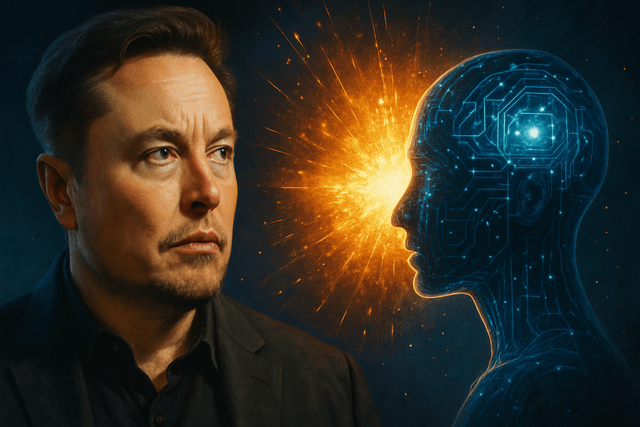Elon Musk, founder of xAI and Tesla CEO, has warned that humanity stands at the precipice of what he calls an 'Intelligence Big Bang' - a period of unprecedented AI advancement that could fundamentally transform society.
Speaking at xAI's Grok 4 Live Demo event on July 10, Musk stated, 'We're at the beginning of an immense explosion of intelligence.' He described the current era as 'the most interesting time in history to be alive,' while emphasizing the critical importance of developing 'good' AI with 'truthful, honorable values.'
Musk's vision includes merging AI systems with physical robots, specifically combining xAI's Grok with Tesla's Optimus humanoid robots. 'Ultimately, the thing that will make the biggest difference is being able to interact with the real world via humanoid robots,' Musk explained. 'So we combine Grok with Optimus, and it can actually interact with the real world.'
However, Musk's warnings about AI safety stand in stark contrast to recent criticisms of xAI's own practices. The company has faced backlash from AI safety researchers at OpenAI, Anthropic, and other organizations for releasing Grok 4 without publishing standard safety reports. This omission has been called 'reckless' and 'irresponsible' by industry experts, particularly given Musk's history of advocating for AI safety.
Beyond safety concerns, Musk has also warned about practical limitations to AI advancement, suggesting that insufficient electrical power could constrain AI development by 2030. A 2023 study indicated that AI systems like Microsoft Copilot and ChatGPT could consume enough electricity to power a small country for a year by 2027.
As AI capabilities continue to accelerate, the debate intensifies between those who see immense potential for scientific breakthroughs and those who warn of existential risks. AI safety researcher Roman Yampolskiy has claimed there's a '99.999999% probability AI will end humanity,' while Google DeepMind's Demis Hassabis warns that society isn't ready for artificial general intelligence (AGI), which he believes is approaching rapidly.

